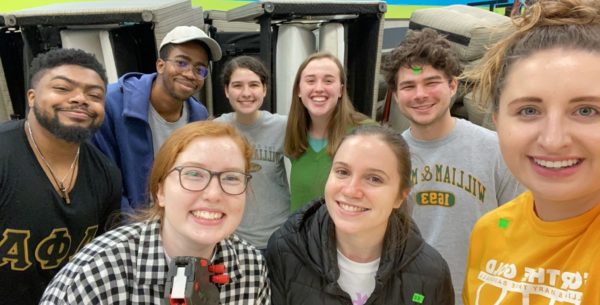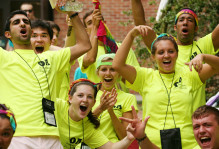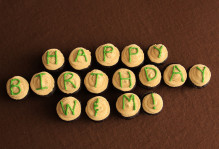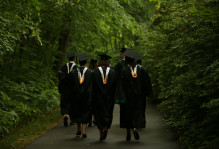Community = Q(f x d)>R(f x d)
On our first day in class this semester, I asked my students — all first years in the Aim 4 program — how they define community. Then I shared with them some definitions from the last 75 years.
This broad offering:
“A common definition of community emerged as a group of people with diverse characteristics who are linked by social ties, share common perspectives, and engage in joint action in geographical locations or settings.”(1)
Students were most drawn to this contemporary option:
“I think the traditional definition of community is outdated. It is mostly based on shared location: “a group of people living in the same place”. That’s what community used to be, historically. But for many of us, our village or neighborhood isn’t anymore our key definer of identity or fellowship…. Community = a group of people that care about each other and feel they belong together.”(2)
One of my favorites from 1963 tries to operationalize community:
“Geographically, I propose, the community is a set of interrelated centers… A man can be said to be a member of a geographical community (set of interrelated centers) if his frequency of going to the centers of the community times the average duration of time he spends there, is greater than such frequency times duration for any other set of interconnected centers. That is (q) is a member of community (Q), if his (f x d) for (Q) centers is higher than his (f x d) for the centers of community (R), (S), (T), etc…”(3)
I love that William & Mary values and cultivates community. You’ll see the word woven throughout web pages, blogs, and student quotes, and of course it’s in the name of our office. But I value even more the opportunity to explore and complicate what community means, with students who want to do the same.
If you have a favorite definition of community or a way to complicate its meaning, share it with me.
(1) Macqueen KM, Mclellan E, Metzger DS, et al. 2001. “What is community? An evidence-based definition for participatory public health”
(2) Pfortmuller, Fabian. 2017.“What does “community” even mean? A definition attempt and conversation starter”
(3) Freilich, Morris. 1963. “Toward an Operational Definition of Community”





No comments.
Comments are currently closed. Comments are closed on all posts older than one year, and for those in our archive.